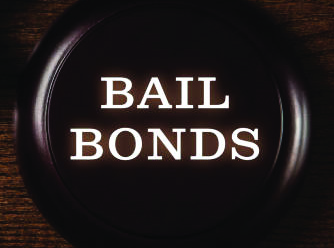BAIL FAQ'S
Frequently Asked Questions About Bail Bonds
How does bail work?
The judges of each county set bail amounts for each offense and publish a Bail Schedule. When a person is arrested and booked into the jail a Deputy will utilize the bail schedule to determine the total amount required for a defendant’s release.
A bail bond is an insurance policy that is posted at the jail for the release of a person from custody. The bond is held by the court and
is guaranteed by Action Bail Bonds and the individual(s) paying for bail (Indemnitor/Co-signer). The Bail Bond Agency guarantees to
the court that the defendant will appear in court each and every time the judge requires them to do so until the case is over.
How long does the bail bond process take?
Getting the process started at Action Bail Bonds is quick and easy. Our agents will ask the caller a series of questions to qualify the bond. Once an application is received and approved, our Agents will then proceed to post the bond for you or your loved one. After the Bond is delivered to the Jail/Detention Facility, the release process is started for the arrested individual. The actual time of the release process varies by Detention Facility and by County.
Is it possible to start the bail process over the phone?
YES! As soon as you call Action Bail Bonds, you can begin the bail process right over the phone with one of our agents. Approvals are quick and easy and you can have a bond posted in minutes. Our Agents are available and on standby 24/7 to receive your call and to start the bail process immediately to help get you or your loved one out ASAP.
How long does it usually take for the arrested individual to be released from jail?
How do I post a bond?
In most cases, bail bonds are posted by a bail bonding company, such as Action Bail Bonds. Acting as a surety, the bail bondsman is
paid a percentage of the bond by the accused and the bonding company will post the bail bond to the court. You get out of jail and the surety assures the court that you will appear for your court date(s).



What are the release options when someone is arrested?
> Surety Bond (Bail Bond):
An alternative to cash, this process involves an agreement with an insurance company that has adequate assets to satisfy the face value of the bond. The bail agent guarantees to the court that his/her company will pay the bond forfeiture if the defendant fails to appear in court. For this service, the defendant is charged 10% of the bail amount which is the standard industry rate for ALL bail bond companies per the California Department of Insurance. For example, if the bail amount is $2,500, the premium charged is $250. Prior to the posting of the surety bond, the defendant, friend or relative contacts a licensed bail agent. Action Bail Bonds can be contacted toll-free at 877.231.7550, and we also accept collect calls at 714.576.5767. By involving family and friends of the defendant, in addition to the collateral, the bail agent will post a bond for the full amount, financially guaranteeing the defendant’s appearance in court as scheduled.
> Release on Own Recognizance (O.R.):
Once arrested, the defendant is interviewed and a points system is usually used to qualify the defendant for an O.R. release. Points are given based on family, job, length of time in the community and stability among other things. An O.R. release is without any financial security to the court, to ensure the defendant will appear on the designated court date.
> Release on Citation (Notice to Appear):
This procedure involves a citation issued by the arresting officer to the arrestee. It informs the arrestee that he/she must appear in court on an appointed date. The “cite out” usually occurs immediately following an individual’s arrest.
What forms of payment do you accept?
We accept Visa, MasterCard, American Express, Discover, Cash, Venmo, Zelle, and Apple Pay.
Will I get any money back from the premium that I paid for the bail bond?
The bail premium is fully earned once the bondsman posts the bail and the defendant is released from jail. The premium paid to the bail agency is their fee for providing the release of your loved one so that they can get back to family and work. Therefore, our fee (the 10% premium) is non-refundable.
How long is the bond good for?
The bail bond is good as long as the case lasts. However, the terms of the contract state that the bail bond premium is paid annually.
What is collateral and when will it be returned?
Collateral in many cases is as simple as your good signature, but it can include a home, an automobile, or anything of value that can be used to financially secure a bail bond. Collateral is returned when the court has finished with the defendant’s cases(s), usually upon sentencing. The court will then notify us by mail of the exoneration of the case(s). Once we receive written notice from the court, collateral is returned.
What is a warrant surrender?
If you have an Arrest or Bench Warrant, Action Bail Bonds can help. We can get you the information you need and make arrangements for posting a bond before surrendering so that you will be out and on your way in as little time as possible.
The responsibilities of co-signers:
What happens when defendants miss court or flee?
Many things can happen if a defendant decides to flee and not show up for a court date. The judge at the trial will issue a bench warrant allowing the defendant to be arrested on sight. The bond agency could send out a bondsman to start tracking down the defendant in order to bring the person back to court. If the defendant does not return within a certain timeframe, then the bond is forfeited. This means the money and any collateral is lost.
